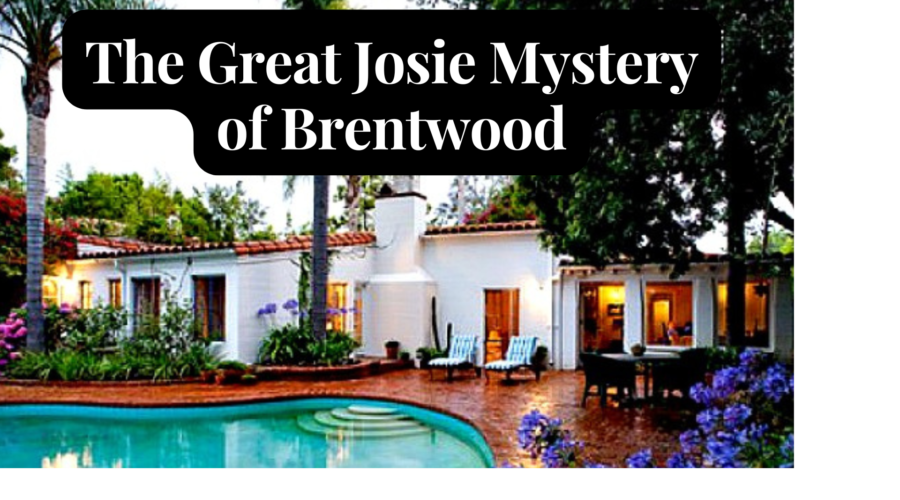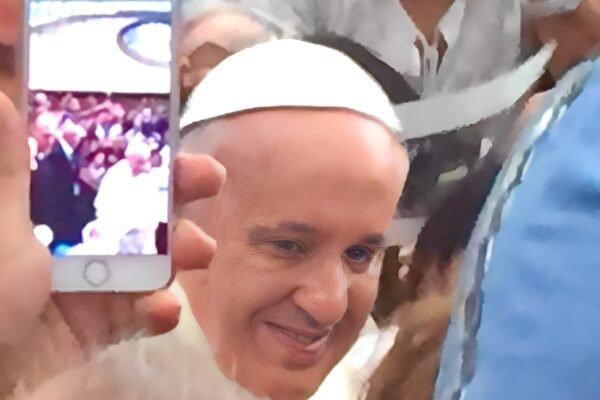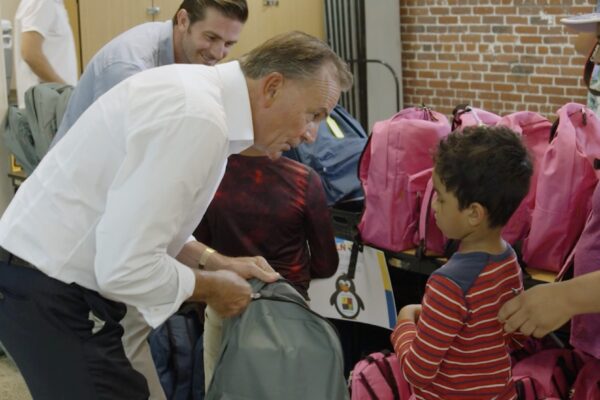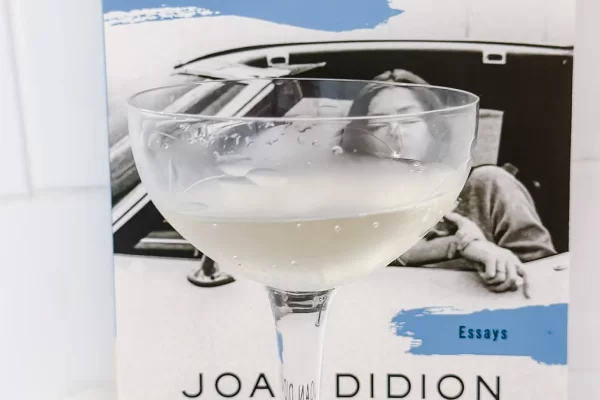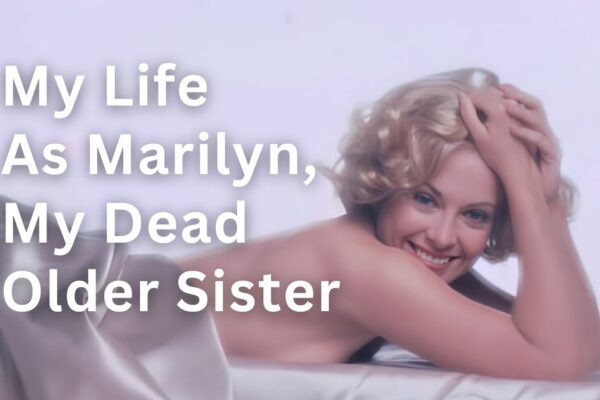In 1978, Los Angeles was still basking in the afterglow of its golden age. The city was a sun-drenched playground where dreams came to life—or, as I discovered on one particular day, where dreams went to retire.
My assignment was straightforward: a nostalgic piece on Marilyn Monroe’s last home in Brentwood. The house, parts left in the same state as it was the day she died, was a shrine to the legend, a place where the aura of stardom still lingered like a fading perfume.

I arrived with the intention of capturing the ghostly essence of the place—empty rooms, perhaps a forlorn echo of her voice, or a ghostly breeze wafting through the curtains. Instead, I found Josie.
Josie, the woman I encountered, was an enigma wrapped in a dusting apron. She was striking in an old Hollywood way, with the kind of bone structure that made you wonder if she had once graced the silver screen herself. But there she was, vacuuming the remnants of Monroe’s past. I assumed her to be a former actress fallen on hard times—surely, that would make for a charming column.
“Morning,” I said, trying not to startle her as she wrangled with the vacuum cord like it was a wayward boa constrictor.
“Morning, sugar,” she replied in a voice that had a hint of breathiness—one that was oddly familiar, yet elusive. “You here to see the house?”
“That’s right. What about you? Are you, uh, taking care of it?”
“Well, somebody’s got to,” she said, flashing a smile that was part sweetness, part mischief. “This place doesn’t clean itself, you know.”
She had a way of speaking that was almost theatrical, like she was delivering lines in a play. But there was something else, too—a sparkle in her eye, a tilt of the head—that felt… rehearsed. I decided to dig deeper.
“How long have you been looking after the place?” I asked.
“Oh, long enough to remember when it wasn’t so lonely,” she said with a wistful sigh, her gaze drifting toward a picture of Marilyn on the wall.
“Were you here… when Marilyn was?”
She laughed, a tinkling sound that rang a little too high. “Oh, honey, I’m not that old! But I might’ve known her once, in another life.”
Her response was odd, but the way she said it made me question my own reality for a moment. Could it be? No, I dismissed the thought as quickly as it came.
Josie was a fascinating character—full of contradictions, as if she was always just on the verge of saying something monumental, then pulling back at the last moment. I spent the next hour helping her clean, hoping to unravel the mystery of who she was and how she had come to be here.
At one point, she paused, staring at a portrait of Marilyn. “Do you think she was happy?” she asked me.
“Marilyn? I think she had moments of happiness, like anyone else. But she was also very lonely.”
Josie nodded, her eyes misting over. “Loneliness is a funny thing, sugar. You can be surrounded by people and still feel all alone.”
The conversation was turning deeper than I had anticipated, so I took a shot in the dark. “You wouldn’t happen to be… Marilyn, would you?”
The question hung in the air like the final chord of a suspenseful symphony. Josie looked at me, her expression unreadable, then broke into a wide grin. “Oh, sugar, that’s the silliest thing I’ve ever heard! When did you last eat? You’re not thinking straight.”
She was deflecting, but there was something in her tone—a mix of amusement and… something else. Concern? A hint of truth? I couldn’t tell. But the next thing I knew, she was insisting we go out for a late breakfast.
“You’ve got to try Duke’s,” she said, eyes twinkling. “Best breakfast place around. I’ll even drive.”
I hesitated—my sports car was my pride and joy—but something about her was so disarming, so endearing, that I handed over the keys.
Big mistake.
We hadn’t even left the driveway before she nearly drove us into a rose bush. The next twenty minutes were a harrowing ride through the streets of Brentwood, with Josie at the wheel, her foot heavy on the gas, and my heart lodged firmly in my throat.
“You sure you know how to drive?” I asked, gripping the seat as she swerved to avoid a cat.
“Of course, darling! I used to drive all the time back in the day. You’re just a little nervous because you’re not used to my style,” she said with a wink.
Her style, as it turned out, involved taking corners at speeds that made the car tilt precariously on two wheels. But somehow, miraculously, we made it to Duke’s in one piece.
The breakfast was worth the terror, I’ll give her that. As we sat in the sunny diner, Josie regaled me with stories that seemed to straddle the line between reality and fantasy. She spoke of glamorous parties, old Hollywood scandals, and friendships with people who, by all rights, should have been long dead. And all the while, she maintained this playful, almost flirty air that kept me off balance.
As we finished our meal, she leaned across the table and asked, “So, what do you think of our little city so far?”
“It’s… not what I expected,” I said truthfully.
Josie smiled. “That’s the thing about LA, sugar. It’s never what you expect.”
By the time we left Duke’s, I was more confused than ever. Was Josie just an eccentric older woman with a flair for the dramatic, or was she something more? Someone more? I couldn’t shake the feeling that I had just spent the day with a ghost, a phantom of Hollywood’s past who had taken a peculiar interest in me.
We drove back in relative silence, me too caught up in my own thoughts to speak, and Josie humming a tune that I could have sworn was from a Marilyn Monroe movie. As we approached the house, she suddenly asked me to drop her off at a friend’s place along the Pacific Coast Highway.
“Just let me out here,” she said as we neared a large, secluded estate that overlooked the ocean. “I’ll walk the rest of the way.”
I pulled over, still dazed from the day’s events. “Will I see you again?” I asked, though I wasn’t sure I wanted an answer.
Josie smiled—a sad, knowing smile that seemed to carry the weight of decades. “Who knows? Maybe. Take care of yourself, sugar.”
And with that, she was gone, slipping through the wrought iron gates and disappearing down the long driveway. I sat there for a moment, staring after her, half-expecting to see the faint outline of a blonde bombshell waving goodbye.
As I drove away, I couldn’t help but laugh at the absurdity of it all. Who was Josie? Just an old woman with a flair for theatrics? Or had I really just spent the day with the ghost of Marilyn Monroe, hiding in plain sight?
I suppose I’ll never know for sure. But one thing’s certain: Los Angeles is a city of dreams, where nothing is ever quite as it seems, and where, if you’re lucky—or maybe just a little bit crazy—you might just find yourself having breakfast with a legend.
TONY CASTRO, the former award-winning Los Angeles columnist and author, is a writer-at-large and the national political writer for LAMonthly. org. He can be reached at tony@tonycastro.com.
This previously unpublished story, with minor edits, was supposed to be his maiden column at the Los Angeles Herald Examiner which had just hired him in 1978. His editors hated it. Had they made a mistake in hiring him?

